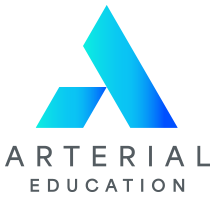

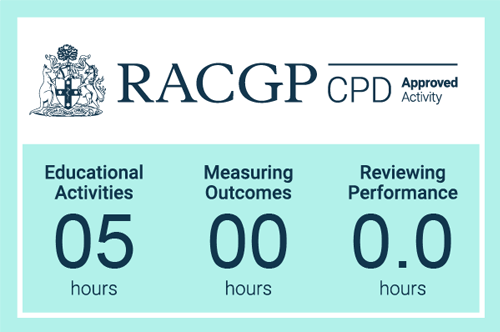
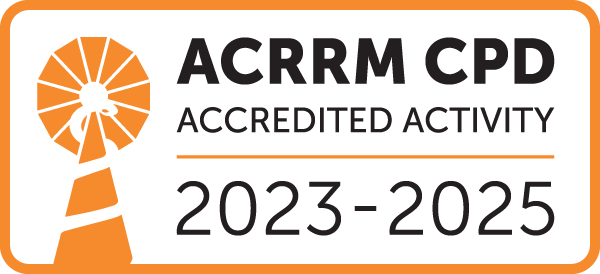
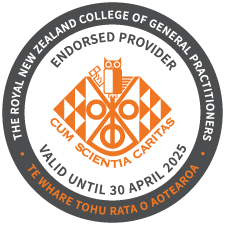


Supported by an unrestricted educational grant from IPSEN Australia.
Partnership project funding from Novartis Australia.
Join our patients in an interactive, case-based online activity on how to diagnose and treat neuroendocrine tumours in general practice
By the end of this course, participants will be able to:
- Discuss the pathophysiology and epidemiology of neuroendocrine tumours (NETs)
- Outline the symptoms of NETs
- Describe appropriate investigations and diagnostic pathways for patients with suspected NETs
- Outline pharmacological and non-pharmacological treatment options for NETs and their appropriate clinical application
- Using a multidisciplinary team, formulate a whole-person approach to the management of patients with NETs
Australian GPs

This is an RACGP-approved CPD activity under the RACGP CPD Program for the 2023-25 triennium. It will take approximately 5 hours to complete.
For the automatic allocation of RACGP CPD points, please make sure your user profile includes your membership number prior to commencing this course. You can enter your membership number on your profile page here.

This education is designed to take 5 hours and is accredited for 5-hours of Education Activity in the ACRRM PDP for the 2023-2025 triennium.
New Zealand GPs

This education is a Category 3 Educational Activity in the RNZCGP CPD Programme. It will take approximately 5 hours to complete.
You will receive a certificate of completion for self-reporting your learning to the RNZCGP.
A note for NZ GPs from Dr Ben Lawrence (Medical Oncologist, Auckland)
GPs in Aotearoa New Zealand will notice that occasionally the information in this learning module contained specific information for looking after people with NETs in Australia, and so some of the language and services might not be familiar.
To decipher these differences, you might notice:
- The epidemiology of NETs is described using Australian figures. However, the NZ epidemiology is very similar.
- The availability of therapies for NETs is not the same between Australia and NZ.
- In NZ, somatostatin analogues are funded for therapy of ‘functioning’ NETs, but not for ‘non-functioning’ NETs. At the time of writing we have access to octreotide, but not lanreotide.
- In NZ, we have funded access to PRRT and most chemotherapy. We do not have funded access to the systemic therapies everolimus, sunitinib, streptozotocin, and telostristat.
- In NZ, we have funded access to hepatic surgery and hepatic ablation. But we seldom have access to SIRT or TACE for NETs (although TACE has been available at a few DHBs in the past).
- In NZ, specialists are able (and encouraged) to present their patient’s case at a National NET MDM to help guide the management of the patient. GP’s are welcome to join. The NET MDM is an online weekly meeting based in Auckland and comprising NET specialists from across the country. This is the NZ version of ‘large academic hospitals in each state’ for people with NETs.
- This document refers to the specific health needs of indigenous Australians. NZ Māori also have specific health needs, but these are not the same as those of indigenous Australians.
- In some places this document implies that GPs order biopsies and scans at hospitals. This is not usually possible in the NZ primary care context.
- Patient support programmes provided by pharmaceutical companies in Australia are not currently provided in NZ.
- In NZ, the patient advocacy group is called Neuroendocrine Cancer New Zealand. The website is www.neuroendocrinecancer.org.nz. They provide a fantastic resource for people with NETs in NZ.
Nurses
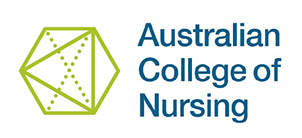
This online course is endorsed by ACN according to our Continuing Professional Development (CPD) Endorsed Course Standards. It has been allocated 10 CPD hours according to the Nursing and Midwifery Board of Australia - Continuing Professional Development Standard.
Other healthcare professionals can still enrol and complete this course. You will receive a certificate upon completion.
START LEARNING
If you do not already have an account with Arterial Education, you will be required to create one. This verifies that you are a healthcare professional and allows you to log your learning activities.

